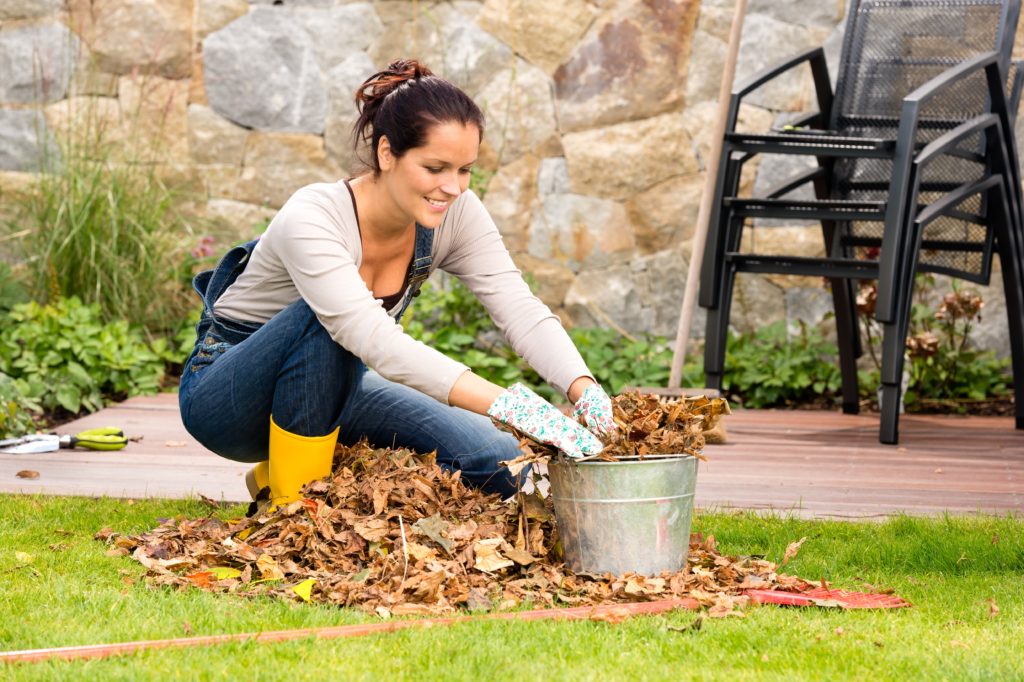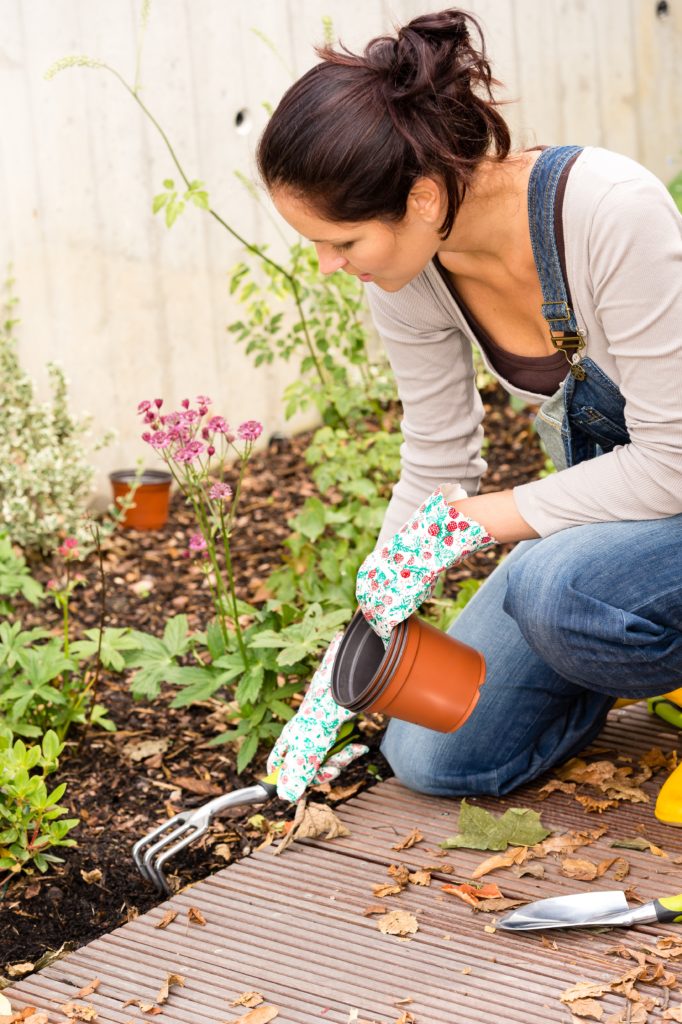Taking time to put your garden to bed, as it goes dormant, will mean it wakes up healthy and strong in the spring.

We all slow down in the wintertime, don’t we? The days are short, it’s dark when we get home from work and nothing fresh is growing in the yard. It’s easy to get complacent.
Gardening experts advise us to take a little bit of time—maybe an afternoon or so—to clean up the garden. Cleaning up your garden beds offers several benefits. It will help prevent the spread of diseases, get rid of weeds and insects, and help prep your beds for planting in the spring.
“Insects are still active until we get a significant cold front to slow them down,” says Maxine Hunter, a county extension agent and a specialist in urban horticulture who works for the University of Florida/Institute of Food and Agricultural Sciences. “Insect eggs may also overwinter (survive), which can create issues in your garden
next spring.”
First, clean up and dispose of any debris, diseased plants and weeds. You want to remove any insect eggs and disease spores so they don’t have a chance to take hold. Yank out any affected annual flowers, vegetables and fruits. Bag them up or take them to the landfill because you don’t want to keep them on your premises. Your beds will look tidier and you’ll have a better feel for where to fill in next spring.
“Bacteria and fungal infections should decrease in the winter if you only water once every other week if there is no rain,” Hunter advises. “Over watering can prevent plants and lawns from going dormant at the appropriate time which can lead to increased freeze damage.”
Second, divide and replant any perennials going dormant that you want to propagate, such as daylilies, hostas, liropes, and the like. This is a good time to dig them up, slice them into halves or thirds, and place the new plants in your garden. Water them in a couple of times, then let them grow on their own. The cooler temperatures will help the transplants acclimate without the stress of excessive heat or the need for growth.

Now is also the time to do some judicious pruning. “Fall gardening should include plans to dead head and prune back plants that are finished flowering for the season,” Hunter advises. “Other, more tender plants should be left alone and pruned back after the last frost for early spring blooms.”
Third, compost any clean, non-diseased plant material. Add it to your compost pile and let nature do the work for you. The cold/warm cycles will help break down the plant material and provide you with rich, crumbly compost for spring planting.
Four, rake up any fallen leaves and pine needles and add them as a covering to your garden beds. Or cheerfully offer to dispose of your neighbors’ leaves. (This is especially effective if you wait until after they’ve raked and bagged them for you.) The leaves will break down over the winter and help enrich the soil with nutrients.
Pick a cool fall afternoon and enjoy the time in your garden. It can be very zen to tidy up pathways and beds and lend order to what the summer produced for you. Afterward, brew yourself a cup of hot cocoa, put your feet up, and enjoy your progress.
Put your garden to bed for the winter and it will wake up in the spring ready to grow for you.






